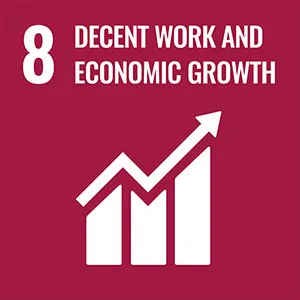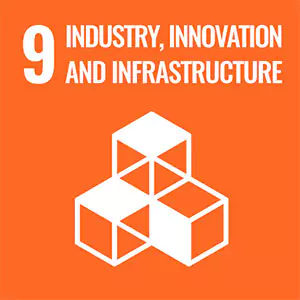MSc Technology-based Entrepreneurship
The master's programme in Technology-based Entrepreneurship provides students the skills to drive innovation at large corporations or create and grow their entrepreneurial ventures. It combines a strong focus on technology with expertise in entrepreneurship, innovation and venturing. Graduates have a unique skill-set in innovation and management and a value-creating mindset adept for dynamic careers.

Technology-based Entrepreneurship at KTH
Today's economy demands individuals with entrepreneurial skills who can identify opportunities, take initiative, and solve problems creatively. This new programme aims to develop future leaders of change who will not only lead large global corporations and organisations but also create and expand innovative ventures that deliver value by addressing customer and societal issues in sustainable, non-traditional ways.
The master's programme in Technology-based Entrepreneurship provides you with the frameworks and skills to develop companies in a dynamic global business environment. The programme equips you with a specialist understanding of technology-based entrepreneurial management. It's about designing the systems and organisations that create, capture and deliver value based on products and services. The programme focuses on entrepreneurship, innovation and venturing within a predominantly technical context. You will understand the dynamics of innovation and entrepreneurship through advanced-level academic courses on entrepreneurial business and management, concentrating on the specific technological and business conditions within selected technology application areas (for example, ICT, life sciences, manufacturing and services). Challenges and opportunities in essential aspects such as sustainability, globalisation and diversity are discussed throughout the programme.
This programme is ideal for students who aim to launch successful technology-based ventures in large organisations or new entities. It is designed for students pursuing careers in various roles, such as corporate ventures, venture capital, technology development and commercialisation, product and project management, start-up leadership, and other broad management roles.
During the first semester, you will gain fundamental knowledge about entrepreneurship, finding challenges, and capturing and developing ideas to solve problems. In the second semester, you will learn how to execute and grow a company. The second year starts with a course in research methodology and a field project focusing on challenge-based entrepreneurship that will allow you to work closely with the more practical project together within the Stockholm entrepreneurship ecosystem. During the final semester, you will conduct a master's degree project.
The programme has an international panel of professors and experts who advise the programme leadership on content issues and provide control and external validation regarding the field and final master's degree projects. Additionally, Sweden is a leading nation in technology and innovation, and this programme is developed in close collaboration with the Technology Entrepreneurship Lab at KTH, providing significant opportunities for students.
This is a two-year programme (120 ECTS credits) in English. Graduates are awarded the Master of Science degree. The School of Industrial Engineering and Management (at KTH) offers the programme mainly at the KTH Campus in Stockholm.
Courses in the programme
Courses in the master's programme in Technology-based Entrepreneurship
Future and career
The master's programme in Technology-based Entrepreneurship represents one of the most important engines of value and new wealth creation in the contemporary economy. We developed this programme for those who want to kick-start a new personal venture or who are looking to pursue a fast-track career in innovative companies. As most corporations they need to be more innovative, creative, and entrepreneurial, this programme prepares you to meet this demand.
After graduation, you can expect to take on roles such as innovation manager, customer success manager, management consultant, founder, digital marketer, business intelligence developer, digital strategy consultant, sales and marketing manager, product development manager and project manager. Graduates work in companies such as Ericsson, H&M, LinkedIn, Microsoft, PayPal, PWC, Salesforce, SEB, and Telia, as well as start-ups like Detectify, Furhat Robotics, FunRock, Connected Senses and MAD Foundation.
Sustainable development
Graduates from KTH have the knowledge and tools for moving society in a more sustainable direction, as sustainable development is an integral part of all programmes. The three critical sustainable development goals addressed by the master's programme in Technology-based Entrepreneurship are:



The programme helps improve employment opportunities, particularly for young people with business ideas, by teaching and coaching students in creativity, innovation, entrepreneurship, and identifying business opportunities. To promote sustainable industrialisation, this programme provides knowledge in industrial dynamics, emphasising innovation and entrepreneurship and aiming towards technical creativity. Moreover, students will have the opportunity to learn about responsible consumption of natural resources and production by applying creative ideas, entrepreneurial approaches, and innovative management. Students apply sustainability frameworks in real projects, such as designing business models for circular economy start-ups or evaluating environmental impacts of new technologies.
Faculty and research
The Sustainability, Industrial Dynamics, and Entrepreneurship unit hosts the programme. The unit is one of three in the Department of Industrial Economics and Management and conducts research and education at the forefront of sustainability transitions and industrial transformations. The unit explores areas related to technological and industrial changes with a focus on innovations, creativity, entrepreneurship and management. Researchers examine and develop concepts in various areas, including eco-innovations, climate change mitigation strategies, the transition towards sustainable energy technologies, business models, industrial buying behaviour, brand strategies, e-commerce, fintech and e-government. Current research projects aspire to contribute to accelerating sustainable energy transformations in aviation, explore how the technology shift to AI can transform Sweden's technology-based industry and examine opportunities for successfully redeveloping closed production plants. Insights from cutting-edge research on sustainable energy transitions and AI-driven business models feed directly into course content and student projects, ensuring teaching is closely aligned with real-world technological shifts.






